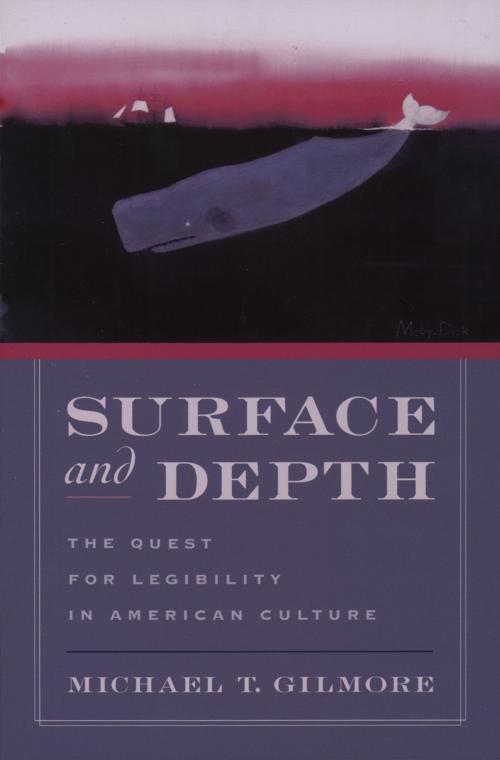Surface and Depth
The Quest for Legibility in American Culture
Fiction & Literature, Literary Theory & Criticism, American, Nonfiction, Social & Cultural Studies, Social Science, Cultural Studies, Popular Culture| Author: | Michael T. Gilmore | ISBN: | 9780190289065 |
| Publisher: | Oxford University Press | Publication: | January 16, 2003 |
| Imprint: | Oxford University Press | Language: | English |
| Author: | Michael T. Gilmore |
| ISBN: | 9780190289065 |
| Publisher: | Oxford University Press |
| Publication: | January 16, 2003 |
| Imprint: | Oxford University Press |
| Language: | English |
The idea of a common American culture has been in retreat for a generation or more. Arguments emphasizing difference have discredited the grand synthetic studies that marginalized groups and perspectives at odds with the master narrative. Surface and Depth: The Quest for Legibility in American Culture is a fresh attempt to revitalize an interpretive overview. It seeks to recuperate a central tradition while simultaneously recognizing how much that tradition has occluded. The book focuses on the American zeal for knowing or making accessible. This compulsion has a long history stretching back to Puritan anti-monasticism; to the organization of the landscape into clearly delineated gridwork sections; and to the creation of a national government predicted on popular vigilance. It can be observed in the unmatched American receptivity to the motion pictures and to psychoanalysis: the first a technology of visual surfaces, the second a technique for plumbing interior depths. Popular literature, especially the Western and the detective story, has reinscribed the cult of legibility. Each genre features a plot that drives through impediments to transparent resolution. Elite literature has adopted a more contradictory stance. The landmarks of the American canon typically embark on journeys of discovery while simultaneously renouncing the possibility of full disclosure (as in Ahab's doomed pursuit of the "inscrutable" white whale). The notorious modernism of American literature, its precocious attraction to obscurity and multiple meaning, evolved as an effort to block the intrusions of a hegemonic cultural dynamic. The American passion for knowability has been prolific of casualties. Acts of making visible have always entailed the erasure and invisibility of racial minorities. American society has also routinely trespassed on customary areas of reserve. A nation intolerant of the hidden paradoxically pioneered the legal concept of privacy, but it did so in reaction to its own invasive excesses.
The idea of a common American culture has been in retreat for a generation or more. Arguments emphasizing difference have discredited the grand synthetic studies that marginalized groups and perspectives at odds with the master narrative. Surface and Depth: The Quest for Legibility in American Culture is a fresh attempt to revitalize an interpretive overview. It seeks to recuperate a central tradition while simultaneously recognizing how much that tradition has occluded. The book focuses on the American zeal for knowing or making accessible. This compulsion has a long history stretching back to Puritan anti-monasticism; to the organization of the landscape into clearly delineated gridwork sections; and to the creation of a national government predicted on popular vigilance. It can be observed in the unmatched American receptivity to the motion pictures and to psychoanalysis: the first a technology of visual surfaces, the second a technique for plumbing interior depths. Popular literature, especially the Western and the detective story, has reinscribed the cult of legibility. Each genre features a plot that drives through impediments to transparent resolution. Elite literature has adopted a more contradictory stance. The landmarks of the American canon typically embark on journeys of discovery while simultaneously renouncing the possibility of full disclosure (as in Ahab's doomed pursuit of the "inscrutable" white whale). The notorious modernism of American literature, its precocious attraction to obscurity and multiple meaning, evolved as an effort to block the intrusions of a hegemonic cultural dynamic. The American passion for knowability has been prolific of casualties. Acts of making visible have always entailed the erasure and invisibility of racial minorities. American society has also routinely trespassed on customary areas of reserve. A nation intolerant of the hidden paradoxically pioneered the legal concept of privacy, but it did so in reaction to its own invasive excesses.















